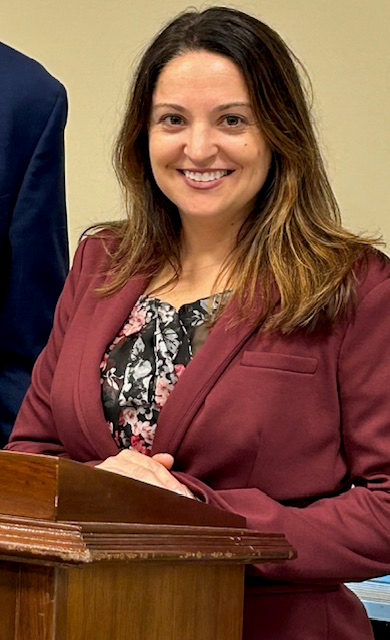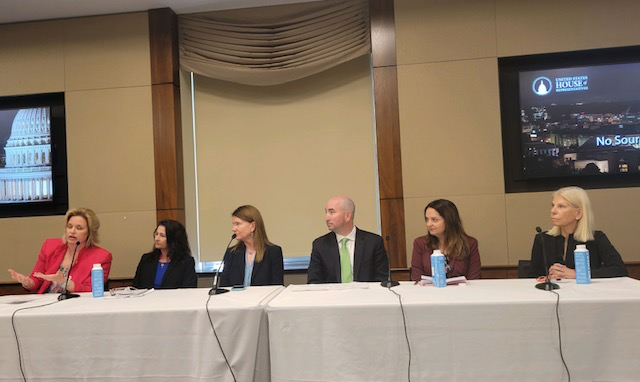AOTA Member describes benefits of OT via telehealth during congressional briefing
AOTA member Kathleen Dwyer, OTR/L, CHT, RAC-CT, CHC, Vice President of Compliance, Legacy Healthcare Services, reviewed the benefits of OT services provided via telehealth during a Congressional Briefing on May 21 in the Rayburn House Office Building. The Hospital for Special Surgery in New York organized the event which also featured panelists from APTA and ASHA describing the benefits of PT, SLP and audiology via telehealth.

Kathleen Dwyer, OTR/L, CHT, RAC-CT, CHC
Dwyer noted the important role that telehealth plays in enabling occupational therapists (OTs) to work with occupational therapy assistants (OTAs) to treat patients in assisted living, senior independent livings and skilled nursing facilities, especially in rural and other low density population areas. She added that this is especially important given the shortage of both OTs and OTAs nationwide. Dwyer described a patient OT session via telehealth where an OTA works in person with the patient at the facility while an OT provides a real-time patient assessment through video. She added that, "an OT in a central location can work with far more patients this way, rather than spending time on the road between facilities." She emphasized that, "failure to extend OT telehealth waivers in Medicare would dramatically reduce patient access to OT services for many patients."

The Panelists of the Congressional Briefing titled, "Why Telehealth for PT, OT, Hearing and Speech?"
The panelists also advocated for passage of the Expanded Telehealth Access Act (HR3875/2880) which was introduced by Representatives Mikie Sherrill (D-NJ) and Diana Harshbarger (R-TN) which would establish occupational therapy professionals (OTPs) as well as other therapists as permanent Medicare telehealth providers. AOTA also endorses legislation that was recently passed by the House Ways and Means and Energy and Commerce Committees which would extend telehealth therapy waivers to December 31, 2026, although the full House and Senate must still address this issue before current waivers expire on December 31, 2024.